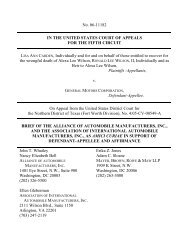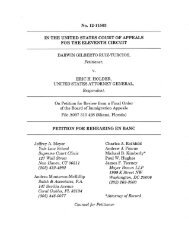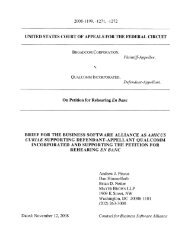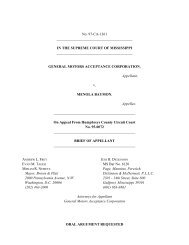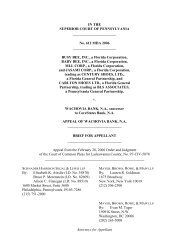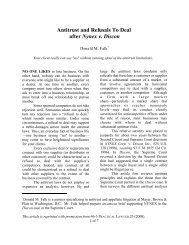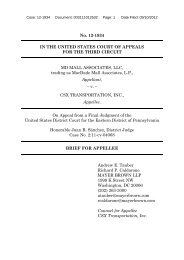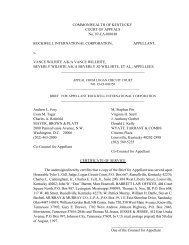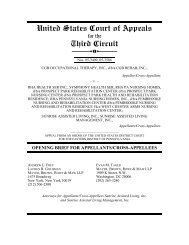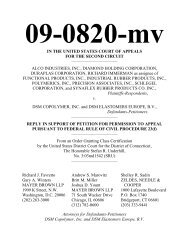No. 5-99-0830 IN THE APPELLATE COURT OF ... - Appellate.net
No. 5-99-0830 IN THE APPELLATE COURT OF ... - Appellate.net
No. 5-99-0830 IN THE APPELLATE COURT OF ... - Appellate.net
Create successful ePaper yourself
Turn your PDF publications into a flip-book with our unique Google optimized e-Paper software.
committing fraud: if all non-OEM parts are inferior, then the state-mandated disclosures are<br />
never accurate. The circuit court had no power to hold that compliance with thirty-seven<br />
states’ laws is always fraudulent. See BMW, 517 U.S. at 573 & n.19. 60/<br />
5. The “Disgorgement” Damages Must Be Vacated Because The<br />
Circuit Court Erred As A Matter Of Law In Imposing A<br />
Constructive Trust On State Farm’s “Savings.”<br />
The ICFA judgment should be reversed for all of the reasons outlined above. But<br />
there are additional reasons why the award of “disgorgement” damages must be vacated.<br />
ICFA allows the “court, in its discretion, [to] award actual economic damages or any other<br />
relief which the court deems proper.” 815 ILCS 505/10a(a). The circuit court acknowledged<br />
that the ICFA class members had already been fully compensated for their actual economic<br />
damages through the specification and installation damages awarded by the jury and that<br />
they could not use ICFA to recover twice. A. 12. Nevertheless, the court inexplicably went<br />
on to award “disgorgement” damages to the plaintiff class by imposing a “constructive trust”<br />
on the $130 million it found State Farm had “saved” during the class period by specifying<br />
non-OEM parts. Id. That decision was wrong as a matter of law.<br />
Because it is an equitable remedy, the imposition of a constructive trust is<br />
permissible only in situations where the plaintiff has no adequate remedy at law. See Hill<br />
v. Names & Addresses, Inc., 212 Ill.App.3d 1065, 1082 (1st Dist. 1<strong>99</strong>1) (“when a plaintiff’s<br />
60/<br />
Punishing conduct authorized by state law also contradicts the policy behind ICFA’s<br />
safe harbor provision. See 815 ILCS 505/10b(1); Aurora Firefighter’s Credit Union v.<br />
Harvey, 163 Ill.App.3d 915, 926 (2d Dist. 1987) (§10b reflects “policy against imposing<br />
greater requirements under the generalized consumer protection legislation than are imposed<br />
by other statutes which address specific kinds of activities and are administered by a State<br />
regulatory body”); Weatherman v. Gary-Wheaton Bank, 186 Ill.2d 472, 488-89 (1<strong>99</strong>9);<br />
Lanier v. Associates Finance, Inc., 114 Ill.2d 1, 17-18 (1986).<br />
-133-



